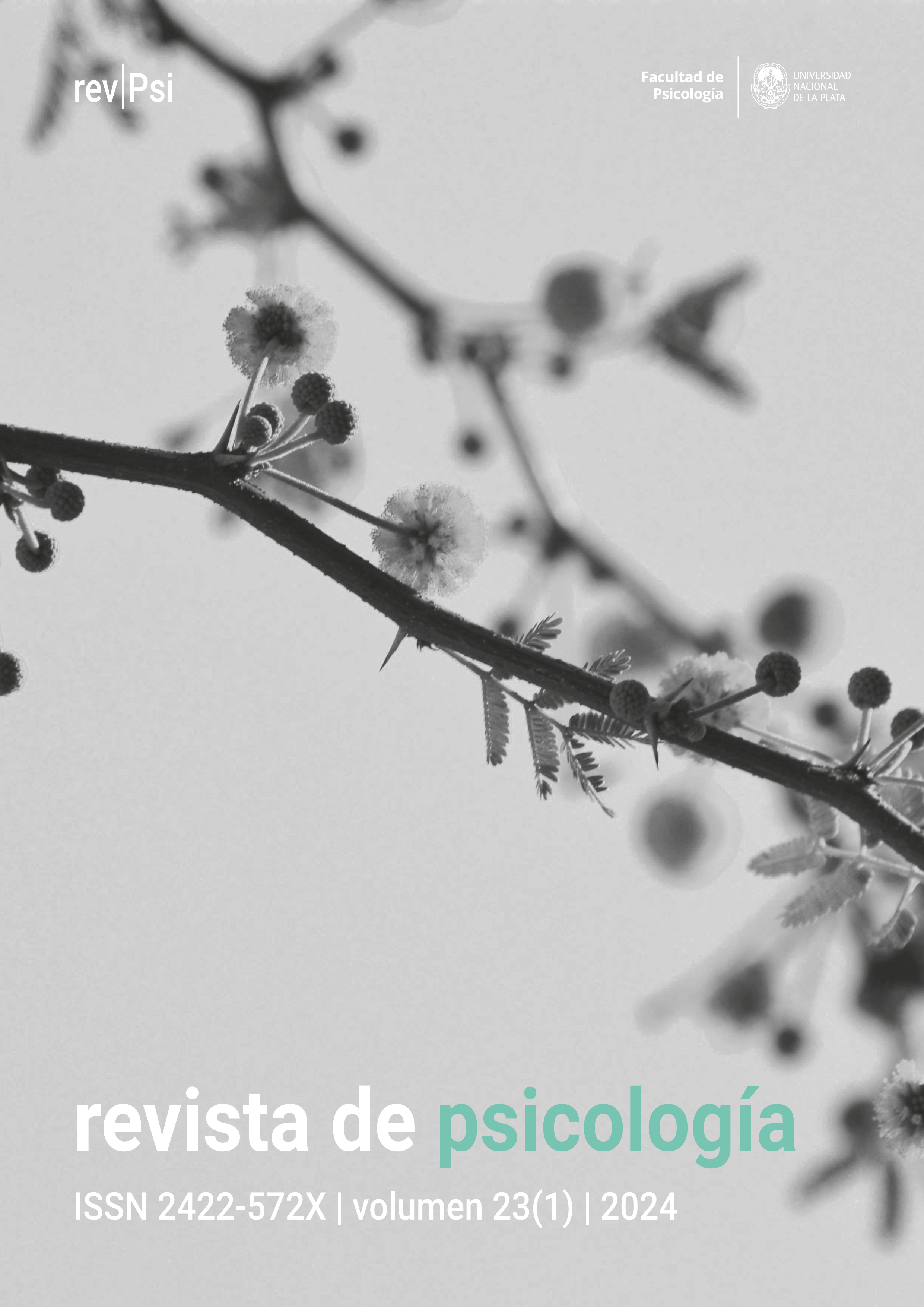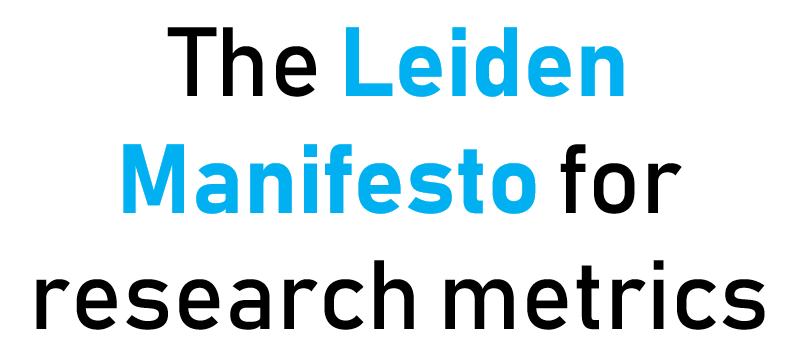Avaliação das necessidades psicológicas básicas no exercício físico: uma revisão sistemática
DOI:
https://doi.org/10.24215/2422572Xe170Palavras-chave:
teoria da autodeterminação, necessidades psicológicas básicas, exercício físico, avaliaçãoResumo
No quadro da Teoria da Autodeterminação, a satisfação e frustração das necessidades psicológicas básicas contribuem para o tipo e grau de motivação para a prática regular de exercício. Foi realizada uma revisão sistemática para analisar as propriedades psicométricas das escalas, avaliando as necessidades psicológicas básicas no contexto do exercício físico. Sob as diretrizes PRISMA, foram utilizadas as bases de dados Scopus, Dialnet e Scielo, identificando 12 artigos instrumentais no período 2006-2020. Em termos gerais, as escalas revisadas fornecem evidências de validade (conteúdo, estrutura interna, estudos de invariância e relação com outras variáveis) e confiabilidade (consistência interna e estabilidade temporal). Conclui-se que, de acordo com outros contextos, o número de dimensões que constituem satisfação e frustração são reproduzidas no exercício físico no seu carácter universal, distintivo e correlacionado, bem como as suas consequências diferenciais para os comportamentos adaptativos e desadaptativos.
Referências
Adie, J. W., Duda, J. L. y Ntoumanis, N. (2012). Perceived coach-autonomy support, basic need satisfaction and the well- and ill-being of elite youth soccer players: A longitudinal investigation. Psychology of Sport and Exercise, 13(1), 51–59. https://doi.org/10.1016/j.psychsport.2011.07.008
American Educational Research Association, American Psychological Association y National Council on Measurement in Education. (2014). Standards for educational and psychological testing. AERA Publications.
Bagheri, L. y Milyavskaya, M. (2020). Novelty–variety as a candidate basic psychological need: New evidence across three studies. Motivation and Emotion, 44, 32–53. https://doi.org/10.1007/s11031-019-09807-4
Bartholomew, K. J., Ntoumanis, N., Ryan, R. M. y Thøgersen-Ntoumani, C. (2011). Psychological need thwarting in the sport context: Assessing the darker side of athletic experience. Journal of Sport and Exercise Psychology, 33(1), 75–102. https://doi.org/10.1123/jsep.33.1.75
Bartholomew, K. J., Ntoumanis, N., Ryan, R. M., Bosch, J. A. y Thøgersen-Ntoumani, C. (2011). Self-determination theory and diminished functioning: The role of interpersonal control and psychological need thwarting. Personality and Social Psychology Bulletin, 37(11), 1459–1473. https://doi.org/10.1177/0146167211413125
Caspersen, C. J., Powell, K. E. y Christenson, G. M. (1985). Physical activity, exercise, and physical fitness: Definitions and distinctions for health-related research. Public Health Reports, 100(2), 126–131. https://www.jstor.org/stable/20056429
Chen, B., Vansteenkiste, M., Beyers, W., Boone, L., Deci, E. L., Van der Kaap-Deeder, J., Duriez, B., Lens, W., Matos, L., Mouratidis, A., Ryan, R. M., Sheldon, K. M., Soenens, B., Van Petegem, S. y Verstuyf, J. (2015). Basic psychological need satisfaction, need frustration, and need strength across four cultures. Motivation and Emotion, 39, 216–236. https://doi.org/10.1007/s11031-014-9450-1
Chung, P- K., Zhong, T., Liu, J-D., Zhang, C-Q. y Wong, M. Y. C. (2020). Development and initial validation of the Psychological Need Frustration Scale for Physical Activity. PeerJ, 8, e9210. https://doi.org/10.7717/peerj.9210
Deci, E. L. y Ryan, R. M. (1985). Intrinsic motivation and self-determination in human behavior. Plenum Press.
Deci, E. L. y Ryan, R. M. (2000). The" what" and" why" of goal pursuits: Human needs and the self-determination of behavior. Psychological Inquiry, 11(4), 227–268. https://doi.org/10.1207/S15327965PLI1104_01
Deci, E. L. y Ryan, R. M. (2002). Handbook of self-determination research. University of Rochester Press.
Duque-Fernández, L. M., Ornelas Contreras, M. y Benavides Pando, E. V. (2020). Beneficios de la actividad física para mantener la capacidad funcional de los adultos mayores. Revista de Ciencias del Ejercicio, 15(1), 1–19. https://doi.org/10.29105/rcefod15.1-10
Edmunds, J., Ntoumanis, N. y Duda, J. L. (2008). Testing a self-determination theory-based teaching style intervention in the exercise domain. European Journal of Social Psychology, 38(2), 375–388. https://doi.org/10.1002/ejsp.463
Emm-Collison, L. G., Standage, M. y Gillison, F. B. (2016). Development and validation of the adolescent psychological need support in exercise questionnaire. Journal of Sport and Exercise Psychology, 38(5), 505–520. https://doi.org/10.1123/jsep.2015-0220
Godin, G. y Shephard, R. J. (1985). A simple method to assess exercise behavior in the community. Canadian Journal of Applied Sport Sciences, 10(3), 141–146.
González-Cutre, D., Sicilia, Á., Sierra, A. C., Ferriz, R. y Hagger, M. S. (2016). Understanding the need for novelty from the perspective of self-determination theory. Personality and Individual Differences, 102, 159–169. https://doi.org/10.1016/j.paid.2016.06.036
Gunnell, K. E., Crocker, P. R. E., Wilson, P. M., Mack, D. E. y Zumbo, B. D. (2013). Psychological need satisfaction and thwarting: A test of basic psychological needs theory in physical activity contexts. Psychology of Sport and Exercise, 14(5), 599–607. https://doi.org/10.1016/j.psychsport.2013.03.007
Gunnell, K. E., Wilson, P. M., Zumbo, B. D., Mack, D. E. y Crocker, P. R. E. (2012). Assessing psychological need satisfaction in exercise contexts: Issues of score invariance, item modification, and context. Measurement in Physical Education and Exercise Science, 16(3), 219–236. https://doi.org/10.1080/1091367X.2012.693340
Hagger, M. y Chatzisarantis, N. (2008). Self-determination theory and the psychology of exercise. International Review of Sport and Exercise Psychology, 1(1), 79–103. https://doi.org/10.1080/17509840701827437
Jenkins-Guarnieri, M. A., Vaughan, A. L. y Wright, S. L. (2015). Development of a self-determination measure for college students: Validity evidence for the Basic Needs Satisfaction at College Scale. Measurement and Evaluation in Counseling and Development, 48(4), 266–284. https://doi.org/10.1177/0748175615578737
Markland, D. y Hardy, L. (1993). The exercise motivation inventory: Preliminary development and validity of a measure of individual reasons for participation in regular physical exercise. Personality & Individual Differences, 15(3), 289-296. https://doi.org/10.1016/0191-8869(93)90219-S
Moher, D., Liberati, A., Tetzlaff, J. y Altman, D. G. (2009). Preferred reporting items for systematic reviews and meta-analyses: The PRISMA statement. Journal of Clinical Epidemiology, 62(10), 1006–1012. https://doi.org/10.1016/j.jclinepi.2009.06.005
Moreno-Murcia, J. A., Martínez-Galindo, C., Moreno-Pérez, V., Marcos, P. J. y Borges, F. (2012). Confirmation of the Basic Psychological Needs in Exercise Scale (BPNES) with a sample of people who do healthy exercise. Journal of Sports Science & Medicine, 11(1), 141–146.
Moreno-Murcia, J. A., Sicilia, Á., Sáenz-López, P., González-Cutre, D., Almagro, B. J. y Conde, C. (2014). Análisis motivacional comparativo en tres contextos de actividad física. Revista Internacional de Medicina y Ciencias de la Actividad Física y del Deporte, 14(56), 665–685.
Moutão, J., Serra, L., Alves, J., Leitão, J. y Vlachopoulos, S. (2012). Validation of the Basic Psychological Needs in Exercise Scale in a Portuguese sample. The Spanish Journal of Psychology, 15(1), 399-409. https://doi.org/10.5209/rev_SJOP.2012.v15.n1.37346
Organización Mundial de la Salud. (2010). Global recommendations on physical activity for health. https://apps.who.int/iris/handle/10665/44399
Quested, E., Ntoumanis, N., Thøgersen-Ntoumani, C., Hagger, M. S. y Hancox, J. E. (2017). Evaluating quality of implementation in physical activity interventions based on theories of motivation: Current challenges and future directions. International Review of Sport and Exercise Psychology, 10(1), 252–269. https://doi.org/10.1080/1750984X.2016.1217342
Rodrigues, F., Bento, T., Cid, L., Neiva, H. P., Teixeira, D.S., Moutão, J., Marinho, D. A. y Monteiro, D. (2018). Can interpersonal behavior influence the persistence and adherence to physical exercise practice in adults? A systematic review. Frontiers in Psychology, 9, 2141. https://doi.org/10.3389/fpsyg.2018.02141
Rodrigues, F., Hair, J. F., Neiva, H. P., Teixeira, D. S., Cid, L. y Monteiro, D. (2019). The Basic Psychological Need Satisfaction and Frustration Scale in Exercise (BPNSFS-E): Validity, reliability, and gender invariance in Portuguese exercisers. Perceptual and Motor Skills, 126(5), 949–972. https://doi.org/10.1177/0031512519863188
Rodrigues, F., Neiva, H. P., Marinho, D. A., Mendes, P., Teixeira, D. S., Cid, L. y Monteiro, D. (2019). Assessing Need Satisfaction and Frustration in Portuguese Exercise Instructors: Scale validity, reliability and invariance between gender. Cuadernos de Psicología del Deporte, 19(1), 233–240. https://doi.org/10.6018/cpd.347331
Rodrigues, F., Pelletier, L., Neiva, H. P., Teixeira, D. S., Cid, L. y Monteiro, D. (2021). Initial validation of the Portuguese version of the Interpersonal Behavior Questionnaire (IBQ & IBQ-Self) in the context of exercise: Measurement invariance and latent mean differences. Current Psychology, 40, 4040-4051. https://doi.org/10.1007/s12144-019-00374-y
Rodrigues, F., Teixeira, D. S., Neiva, H. P., Cid, L. y Monteiro, D. (2020). The bright and dark sides of motivation as predictors of enjoyment, intention, and exercise persistence. Scandinavian Journal of Medicine & Science in Sports, 30(4), 787–800. https://doi.org/10.1111/sms.13617
Ryan, R. M. y Deci, E. L. (2000). Self-determination theory and the facilitation of intrinsic motivation, social development, and well-being. American Psychologist, 55(1), 68–78. https://doi.org/10.1037/0003-066X.55.1.68
Ryan, R. M. y Deci, E. L. (2017). Self-determination theory: Basic psychological needs in motivation, development, and wellness. Guilford Press.
Sánchez, J. M. y Núñez, J. L. (2007). Análisis preliminar de las propiedades psicométricas de la versión española de la Escala de Necesidades Psicológicas Básicas en el Ejercicio Físico. Revista Iberoamericana de Psicología del Ejercicio y el Deporte, 2(2), 83–92.
Sicilia, Á., Ferriz, R. y Sáenz-Álvarez, P. (2013). Validación española de la Escala de Frustración de las Necesidades Psicológicas (EFNP) en el ejercicio físico. Psychology, Society, & Education, 5(1), 1–19.
Teixeira, D. S., Marques, M. y Palmeira, A. L. (2018). Associations between affect, basic psychological needs and motivation in physical activity contexts: Systematic review and meta-analysis. Revista Iberoamericana de Psicología del Ejercicio y el Deporte, 13(2), 225–233.
Teixeira, P. J., Carraça, E. V., Markland, D., Silva, M. N. y Ryan R. M. (2012). Exercise, physical activity, and self-determination theory: A systematic review. International Journal of Behavioral Nutrition and Physical Activity, 9, 78. https://doi.org/10.1186/1479-5868-9-78
Trigueros, R., Álvarez, J. F., Cangas, A. J., Aguilar-Parra, J. M., Méndez-Aguado, C., Rocamora, P. y López-Liria, R. (2020). Validation of the Scale of Basic Psychological Needs towards Physical Exercise, with the inclusion of novelty. International Journal of Environmental Research and Public Health, 17(2), 619. https://doi.org/10.3390/ijerph17020619
Trigueros, R., Minguez, L. A., Gonzalez-Bernal, J. J., Aguilar-Parra, J. M., Padilla, D., y Alvarez, J. F. (2019). Validation of the satisfaction scale of basic psychological needs in physical education with the incorporation of the novelty in the Spanish context. Sustainability, 11, 6250. http://doi.org/10.3390/su11226250
Van der Kaap-Deeder, J., Soenens, B., Ryan, R. M. y Vansteenkiste, M. (2020). Manual of the Basic Psychological Need Satisfaction and Frustration Scale (BPNSFS). Ghent University.
Vansteenkiste, M. y Ryan, R. M. (2013). On psychological growth and vulnerability: Basic psychological need satisfaction and need frustration as a unifying principle. Journal of Psychotherapy Integration, 23(3), 263–280. https://doi.org/10.1037/a0032359
Vansteenkiste, M., Ryan, R. M. y Soenens, B. (2020). Basic psychological need theory: Advancements, critical themes, and future directions. Motivation and Emotion, 44, 1-31. https://doi.org/10.1007/s11031-019-09818-1
Vlachopoulos, S. P. (2008). The Basic Psychological Needs in Exercise Scale: Measurement invariance over gender. Structural Equation Modeling: A Multidisciplinary Journal, 15(1), 114–135. https://doi.org/10.1080/10705510701758398
Vlachopoulos, S. P. y Michailidou, S. (2006). Development and initial validation of a measure of autonomy, competence, and relatedness in exercise: The Basic Psychological Needs in Exercise Scale. Measurement in Physical Education and Exercise Science, 10(3), 179–201. https://doi.org/10.1207/s15327841mpee1003_4
Vlachopoulos, S. P., Asci, F. H., Cid, L., Ersoz, G., González-Cutre, D., Moreno-Murcia, J. A. y Moutão, J. (2013). Cross-cultural invariance of the Basic Psychological Needs in Exercise Scale and need satisfaction latent mean differences among Greek, Spanish, Portuguese and Turkish samples. Psychology of Sport and Exercise, 14(5), 622–663. https://doi.org/10.1016/j.psychsport.2013.03.002
Vlachopoulos, S. P., Ntoumanis, N. y Smith, A. L. (2010). The Basic Psychological Needs in Exercise Scale: Translation and evidence for cross-cultural validity. International Journal of Sport and Exercise Psychology, 8(4), 394–412. https://doi.org/10.1080/1612197X.2010.9671960
Warburton, D. E. R. y Bredin, S. S. D. (2017). Health benefits of physical activity: A systematic review of current systematic reviews. Current Opinion in Cardiology, 32(5), 541–556. https://doi.org/10.1097/HCO.0000000000000437
Wilson, P. M., Mack, D. E., Gunnell, K. E., Oster, K. y Gregson, J. P. (2008). Analyzing the measurement of psychological need satisfaction in exercise contexts: Evidence, issues, and future directions. En M. P. Simmons y L. A. Foster (Eds.), Sport and Exercise Psychology Research Advances (pp. 361-391). Nova Science.
Wilson, P. M., Rogers, W. T., Rodgers, W. M. y Wild, T. C. (2006). The Psychological Need Satisfaction in Exercise Scale. Journal of Sport and Exercise Psychology, 28(3), 231–251. https://doi.org/10.1123/jsep.28.3.231
Zhang, T., Gu, X. y Chu, T. (2018). Social networks, sedentary behavior and physical activity. MOJ Gerontology & Geriatrics, 3(5), 376–377. https://doi.org/10.15406/mojgg.2018.03.00149
Downloads
Publicado
Edição
Seção
Licença
Copyright (c) 2022 Damián Javier Ursino, Horacio Félix Attorresi, Facundo Juan Pablo Abal

Este trabalho está licenciado sob uma licença Creative Commons Attribution 4.0 International License.

Os autores que publicam neste periódico aceitam as seguintes condições:
- Autores mantém os direitos autorais e atribuir o direito de primeira publicação para a revista, com a obra registrada sob uma Licença de atribuição Creative Commons (CC-BY) , que permite que terceiros usem o que é publicado sempre que mencionarem a autoria do trabalho e a primeira publicação desta revista.
- Os autores podem fazer outros acordos contratuais independentes e adicionais para a distribuição não-exclusiva do artigo publicado na revista ESTA (por exemplo, incluí-lo em um repositório institucional ou publicá-lo em um livro), enquanto eles indicou claramente que o trabalho foi publicado pela primeira vez nesta revista.
- Autores são permitidos e encorajados a publicar seus trabalhos na Internet (por exemplo, em páginas institucionais ou individuais) antes e durante o processo de revisão e publicação, pois pode gerar alterações produtivas e maior e mais rápida difusão do trabalho publicado (ver The Effect of Open Access).



































